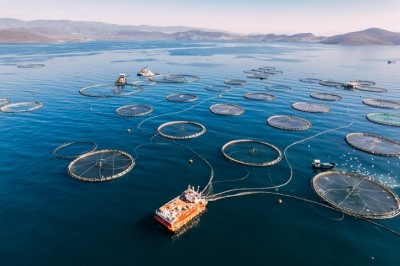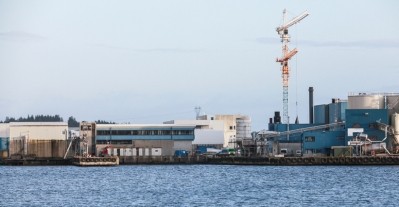Reports from the Blue Food Innovation Summit in London
IFFO technical director: ‘The fishmeal and fish oil industry is no longer the whipping boy of the feed ingredient world’
He is the technical director of IFFO, and he has been in that role since June 2021.
"The fishmeal industry is the most certified feed ingredient sector on the planet. Some 50% of production is independently certified, whether that is Marine Stewardship Council (MSC) or MarinTrust certification," commented Dr Glencross.
While that equates to only 2 to 2.5m tons of fishmeal being certified, in proportional terms, he said, it is way above that of other feed ingredient sectors.
Sustained pressure made the industry realize that it can't run, duck and hide, he noted. "We need to be holier than thou as people are watching us all the time."
The annual review of the forage fisheries sector by the Sustainable Fisheries Partnership, which evalutes reduction fisheries in terms of what the management, governance, and compliance of those operations is like and whether the fishery is sticking with the quota, showed that 70-80% of those fisheries were well managed, reported Dr Glencross.
Room for improvement
There is always room for improvement, he was quick to stress. There is still 20% of those reduction fisheries that need work. One example of that is the North Atlantic Pelagic fishery, which lost its MSC certification for Atlanto-Scandian herring and blue whiting due not to what the fishermen or the industry were doing but because the governments concerned could not get organized, could not agree on how to manage catch levels between different nations, said the IFFO executive.
"Last I heard, they are finally getting some agreement on that, and the quotas are now set in line with ICES recommendations. But they have already lost their MSC certifications; while the fisheries are part of an improver project, that is a five-year process."
To counter negative messaging, exaggeration, and misinformation in relation to marine ingredients, he said it is critical to keep presenting the facts. "No industry is perfect. We recognize that we have a range of challenges from IUU fishing to adulteration and that other irresponsible practices can occur. The advantage of a membership organization like IFFO is that we can bring pressure to bear on our members. What we try and do is work together as a group to actually move the whole sector forward, pushing each other to improve our practices, improve our transparency and improve our traceability," said Dr Glencross.







